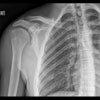
NEW YORK (Reuters Health), Nov 29 - The use of the recreational drug MDMA (3,4-methylenedioxymethamphetamine), commonly known as ecstasy, can cause cardiac valvulopathy in young adults, investigators in Belgium report in the November issue of the American Journal of Cardiology.
"This study is the first that suggests an association between MDMA use and valvular heart disease," lead investigator Dr. Steven Droogmans told Reuters Health. Because his team found evidence of damaged valvular endothelium, "this should be an argument for endocarditis prophylaxis."
In vitro studies have documented activation of the 5-hydroxytryptamine 2B receptor by MDMA, leading to proliferation of cardiac valvular interstitial cells. Dr. Droogmans, a cardiologist at Universitair Ziekenhuis Brussel, and his colleagues examined the potential clinical ramifications of MDMA use by comparing echocardiographic data from 29 subjects (average age 25 years) who had used MDMA for at least six months and 29 age-matched controls.
"In our study, the average use of MDMA was three to six tablets a week," Dr. Droogmans said, although individuals who become addicted to the drug may use much higher quantities. He noted that MDMA concentrations typically vary between 54 mg and 78 mg per tablet.
MDMA users were more likely to exhibit mitral, aortic, and tricuspid valvular regurgitation, restrictive valvular lesions, and valvular "strands," defined as "thin, mobile, filamentous projections attached to the valvular leaflets." Eight MDMA users (28%), but none of the controls, had pathologic echocardiographic results (p = 0.0045) according to U.S. FDA criteria.
The severity of valvulopathy was dose-dependent: For mitral and tricuspid valvular regurgitation rated 2/4 or higher or any aortic regurgitation, the average cumulative dose of MDMA was 943 tablets versus 242 among those with lower grades of regurgitation (p = 0.03).
"Larger studies are urgently needed, not only because of the frequent use of MDMA as a party drug, but also because MDMA is currently under investigation in the U.S. in trials for stress-related syndromes and attention-deficit disorders," Dr. Droogmans said.
"We think that physicians (and the subjects taking MDMA) should be aware of this possible toxic effect ... and that such studies in the United States should include a baseline echocardiogram before the start of the MDMA treatment."
"The long-term effects of the echocardiographic findings in these young (as yet asymptomatic) MDMA users are not known. It is also not clear if the valvular changes are reversible, so we need to be very vigilant."
By Karla Gale
Last Updated: 2007-11-28 17:05:12 -0400 (Reuters Health)
Am J Cardiol 2007;100:1442-1445.
Related Reading
Ecstasy neurotoxic even after first-time use, November 29, 2006
Copyright © 2007 Reuters Limited. All rights reserved. Republication or redistribution of Reuters content, including by framing or similar means, is expressly prohibited without the prior written consent of Reuters. Reuters shall not be liable for any errors or delays in the content, or for any actions taken in reliance thereon. Reuters and the Reuters sphere logo are registered trademarks and trademarks of the Reuters group of companies around the world.

















